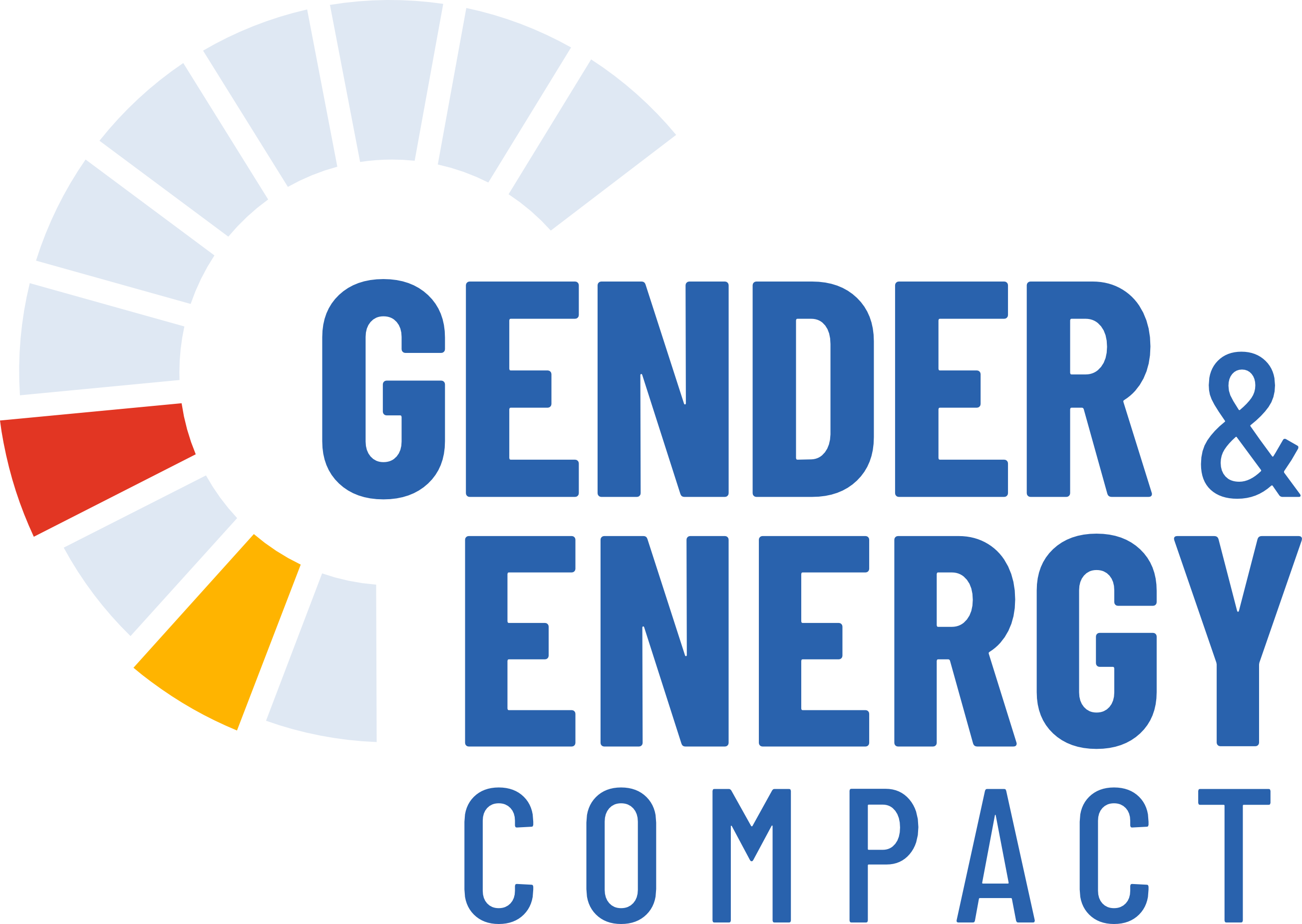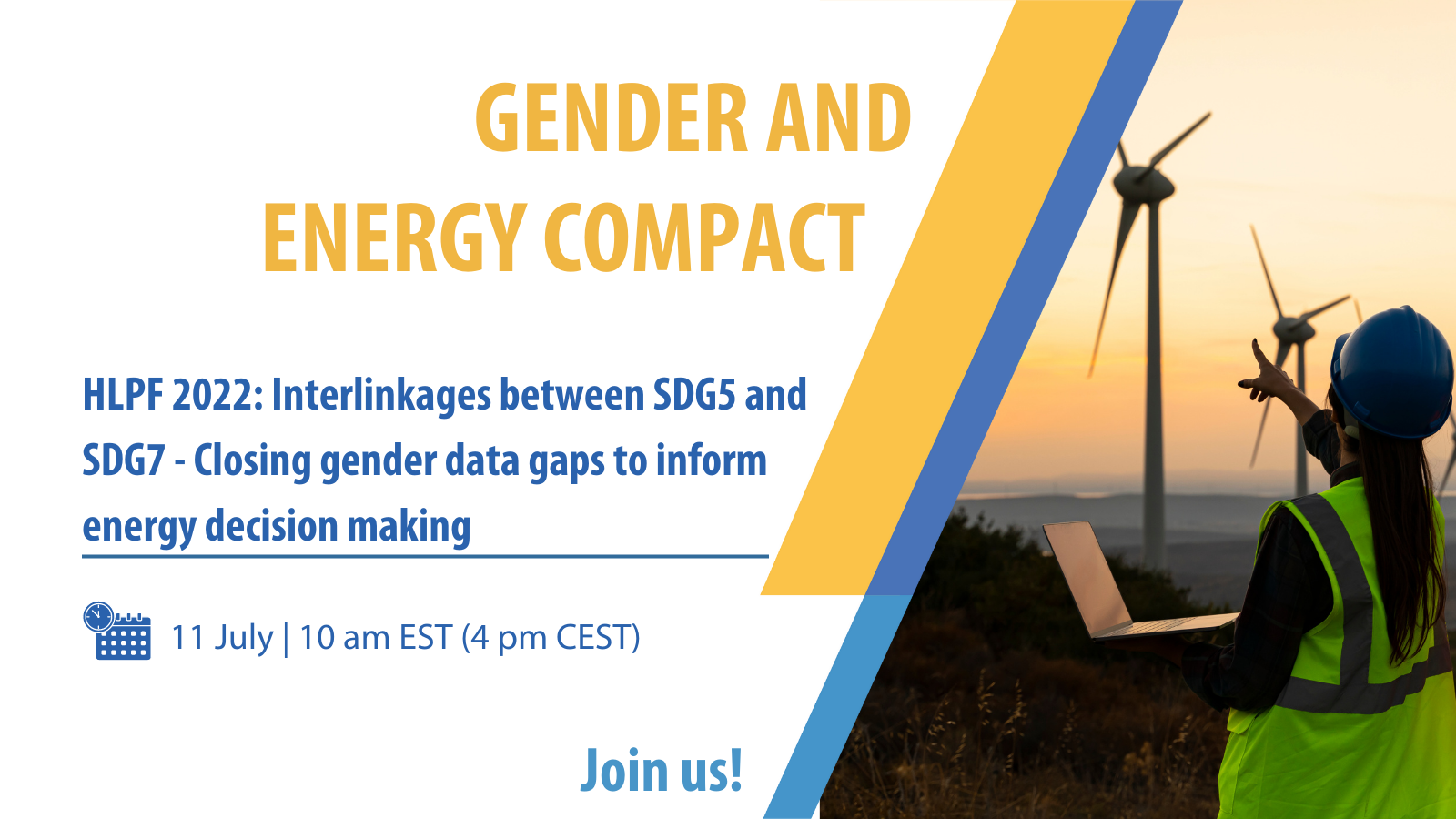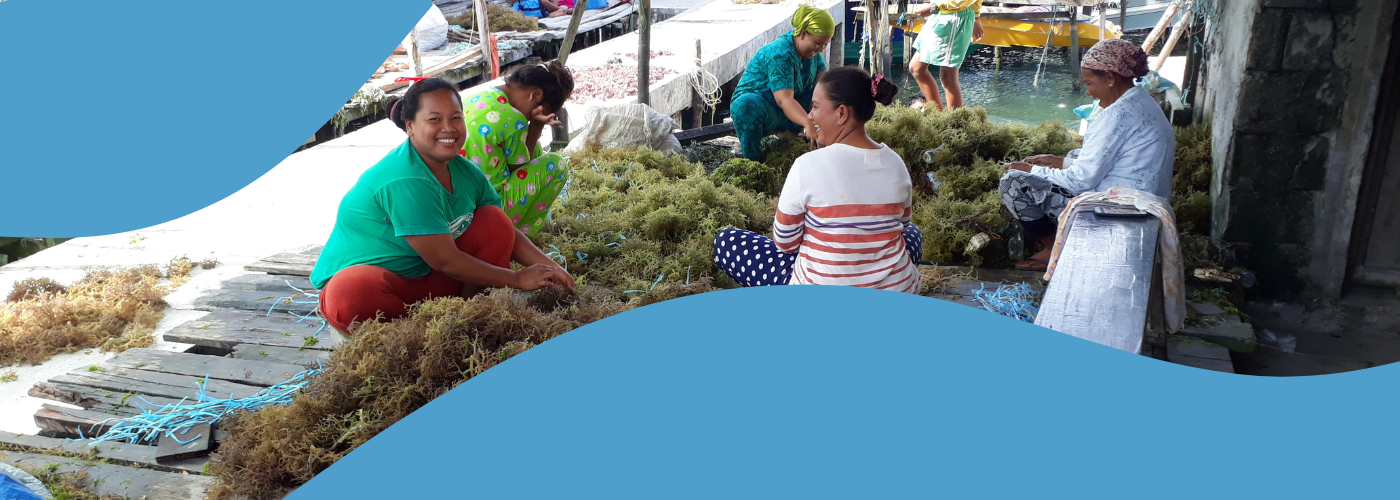ENERGIA, UNDESA and UNIDO are co-organising the side event “Interlinkages between SDG5 and SDG7: Closing gender data gaps to inform energy decision making” on July 11, 2022 at the High Level Political Forum 2022.
From 5th-15th July policy makers, NGOs, youth organisations, and other stakeholders will gather in New York for the 2022 High Level Political Forum to reflect on how recovery policies can reverse the impacts of the pandemic on the SDGs and accelerate actions towards the 2030 Agenda. The HLPF will also review in-depth Sustainable Development Goals 4 on quality education, 5 on gender equality, 14 on life below water, 15 on life on land, and 17 on partnerships for the Goals.
Within this context, ENERGIA, UNDESA and UNIDO are jointly organising a virtual side event on “Interlinkages between SDG5 and SDG7: Closing gender data gaps to inform energy decision making”, on Monday, 11th July. This event draws attention to the need for high-quality, sex-disaggregated data, and consistency in data collection, to address the interlinkages of energy with other SDGs and how access to affordable, sustainable, and clean energy is a precondition for the achievement of SDG5 on gender equality and the empowerment of all women and girls.
This side event aims to foster a dialogue between decision makers and leading experts to highlight the importance of applying a gender lens to energy data in order to accelerate gender-transformative progress towards the 2030 Agenda. It will focus on initiatives and experiences from organisations, including members of the Gender and Energy Compact, a global, multi-stakeholder coalition coordinated by ENERGIA, GWNET and UNIDO.
Date: July 11, 2022
Time: 10:00 – 11:30 am EST | 4:00 – 5:30 pm CEST
Register here!
The event is supported by the governments of Kenya, Nigeria, Norway and is expected to last for around one hour and half with the planned format as follows:
Welcome Remarks: Paul Mbuthi, Deputy Director of Renewable Energy, Ministry of Energy Kenya
Opening Remarks: Hans Olav Ibrekk, Special Envoy, Climate and Security, Norwegian Ministry of Foreign Affairs and Chinwe Onwuka, Rural Electrification Agency, Government of Nigeria
Setting the Scene: Elizabeth Cecelski, Energy Access and Gender Expert, ENERGIA
Panel discussion:
- Irina Lazzerini, Senior Sustainable Energy Expert, Energy Community
- Nathyeli Yethzi Acuna Castillo, Gender Specialist, Energy Sector Management Assistance Program (ESMAP), Sharmila Bellur, Sustainable Energy Consultant, World Bank
- Papa Alioune Seck, Chief of Research and Data, UN Women
- Per Anders Widell, Programme Manager, International Energy Agency
- Martin Niemetz, Sustainable Development Expert on Energy, UNDESA
Q&A
Closing remarks: Katharina Proestler, Project Coordinator and Gender Focal Point, Department of Energy, UNIDO
Moderator: Sheila Oparaocha, Executive Director, ENERGIA International Network on Gender and Sustainable Energy.
SDG5 and SDG7 at the High Level Political Forum
The HLPF offers the opportunity to reiterate the importance of applying a gender lens to policies, programs and projects to ensure a sustainable, just and equitable future. As members of the SDG7 Technical Advisory Group, ENERGIA and UNIDO together with partners, stressed that interlinkages between SDG7 with other SDGs need to be quantified and tracked, in order to inform policy makers and allow opportune policy decisions. Looking at the energy sector, the recently launched SDG7 Policy Briefs for 2022 reported that efforts must drastically scale up to achieve the SDGs and the Paris targets. The SDG7 Tracking report also showed that although progress has been made, we are losing pace towards achieving access to affordable, reliable, sustainable and modern energy for all. Almost one third of the world’s population, 2.4 billion people, still do not have access to clean cooking and 733 million people live without access to electricity.
SDG 7 is one of only six out of the seventeen SDGs with no gender-specific indicators, according to UN Women. However, gender dimensions are key for sustainable energy. In this respect, the work done by the SDG7 TAG and published in the Policy Briefs 2022 suggest that four key areas need to be measured through appropriate indicators: (1) energy poverty, (2) empowerment and leadership, (3) entrepreneurship, and (4) enabling environments. A key recommendation being made for consideration at 2022 High Level Political Forum is to consider the establishment of a platform and a coalition to strengthen collection on gender-responsive energy-data, to address the lack of gender data and consistency in data collection.










